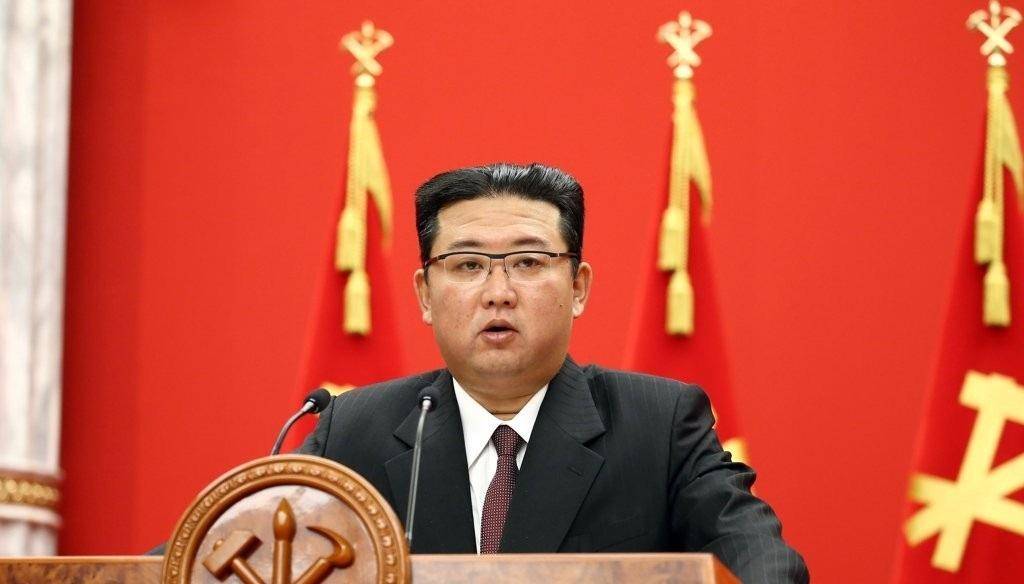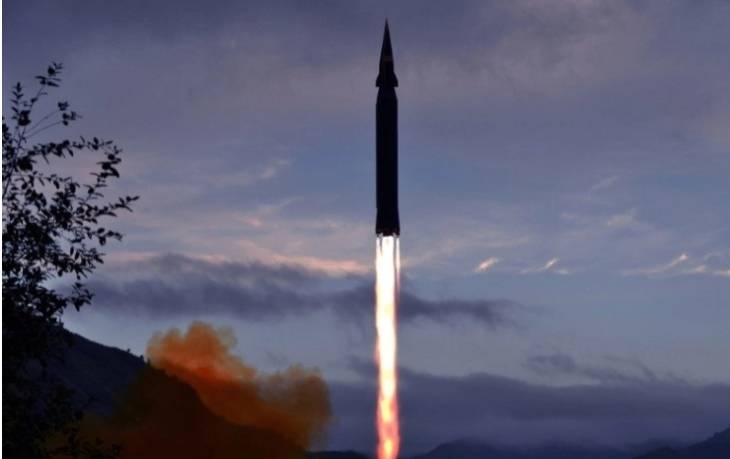The launches followed speculation that the North could conduct an intercontinental ballistic missile (ICBM) or nuclear test to bolster its military presence and tighten national unity …reports Asian Lite News
North Korea fired three ballistic missiles toward the East Sea on Wednesday, South Korea’s military said, just a day after US President Joe Biden wrapped up his Asia trip highlighting America’s security commitment to Seoul and Tokyo.
The Joint Chiefs of Staff (JCS) said it detected the launches from the Sunan area in Pyongyang at around 6 a.m., 6:37 a.m. and 6:42 a.m., respectively, which marked the North’s 17th show of force this year, Yonhap news agency reported.
“While reinforcing monitoring and vigilance activities, our military, in close cooperation with the United States, is maintaining a full readiness posture,” the JCS said in a text message sent to reporters.
The launches followed speculation that the North could conduct an intercontinental ballistic missile (ICBM) or nuclear test to bolster its military presence and tighten national unity amid Covid-19 outbreaks and economic woes.

Meanwhile, a South Korean a Presidential official said on Wednesday said that North Korea has tested a nuclear detonation device apparently in preparation for its seventh nuclear test.
South Korea does not believe a nuclear test will happen in the next day or two, but it could “certainly” take place after that, Kim Tae-hyo, First Deputy Director of the National Security Office, told reporters.
North Korea is believed to be preparing for its first nuclear test in nearly five years at its Punggye-ri nuclear test site, Yonhap news agency reported.
The US Indo-Pacific Command said Wednesday’s missile launches highlight the “destabilising impact of the DPRK’s illicit weapons programme.” DPRK stands for the North’s official name, Democratic People’s Republic of Korea.
“We are aware of the multiple DPRK ballistic missile launches today and are assessing and consulting closely with our allies and partners,” it said in a press release. “The US commitment to the defence of the Republic of Korea and Japan remains ironclad.”
On Tuesday, Biden concluded his first Asia trip since his inauguration early last year.
During a summit with President Yoon Suk-yeol on Saturday, Biden reaffirmed the US “extended deterrence” commitment to South Korea using the “full range of US defence capabilities, including nuclear, conventional and missile defence capabilities.”
To deal with rising North Korean threats, the two leaders agreed to expand the allies’ combined exercises and reactivate a key deterrence dialogue. Biden also reaffirmed the US’ commitment to deploying its strategic military assets “in a timely and coordinated manner as necessary.”
Earlier this month, the North launched what was thought to be an ICBM and then an apparent submarine-launched ballistic missile — in a move seen as an effort to diversify its nuclear delivery vehicles.

Leave a Reply